Background
In the fifth and latest wave of the Arab Barometer, we asked over 25,000 citizens throughout the Middle East and North Africa a series of questions related to World Health Day, including questions relating to evaluations of the healthcare system, and to environmental health issues.
The following factsheet sets out some of the main findings and links to wider information where it is available.
Key facts and figures
EVALUATION OF THE HEALTHCARE SYSTEM
- The percent of individuals who reported that they were either very satisfied, or satisfied, with the healthcare system in their country ranged from a high of 63% in Jordan, to a low of 18% in Libya.
- Across MENA, individuals who were older, less educated, and female, reported higher levels of satisfaction with their healthcare systems, as compared to individuals who were younger, more educated, and male.
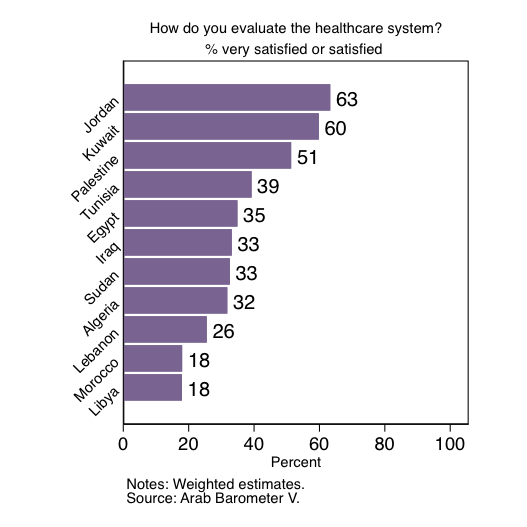
PERCEIVED CORRUPTION IN HEALTHCARE
- The perception that bribes are required in order to receive better access to healthcare systems was highest in Egypt (69%) and lowest in Kuwait (11%).
- Levels of perceived corruption in the healthcare system were higher among individuals living in rural areas (56%) than those individuals living in urban areas (43%).
- Levels of perceived corruption in the healthcare system were higher among individuals living in with incomes above the median (50%) than those with incomes below the median (43%).
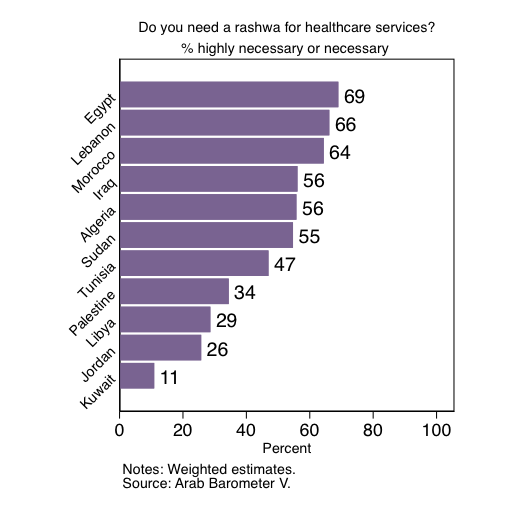
AIR QUALITY
- Views of air quality as a “very serious” problem vary by country — from a high of 57% of Arab Barometer survey respondents in Libya, to a low of 25% of Arab Barometer survey respondents in Kuwait.
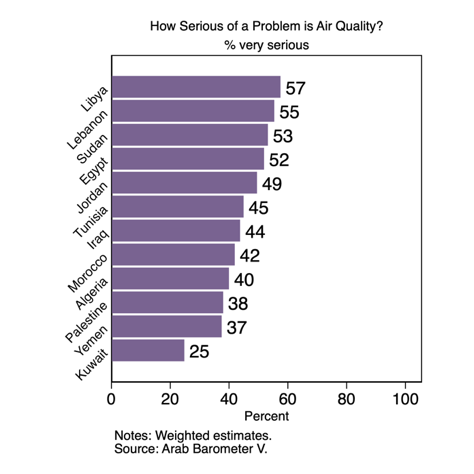
- As the educational level increases, concern in air pollution also increases. Across MENA, 47% of individuals with higher education view air quality as a “very serious” problem, as compared to 45% of individuals with secondary education, and 41% of individuals with basic education.
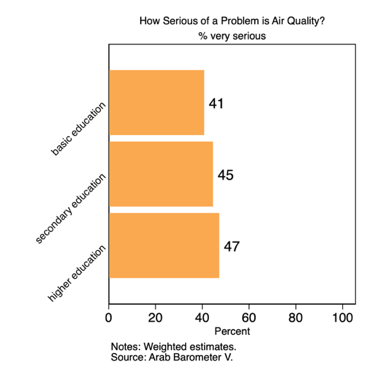
WATER POLLUTION
- Water pollution is viewed as most problematic in Libya, with 83% of individuals reporting that water pollution is a “very serious” problem, and least problematic in Morocco, where 59% report that water pollution is a “very serious” problem.
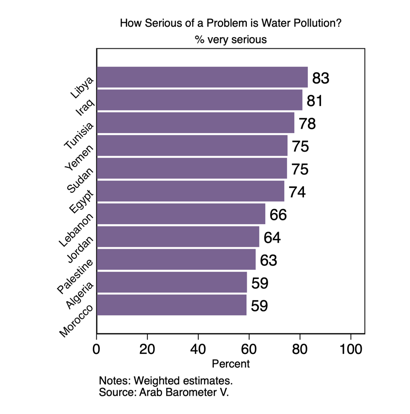
To further explore our data on this topic, we invite you to read our reports:


